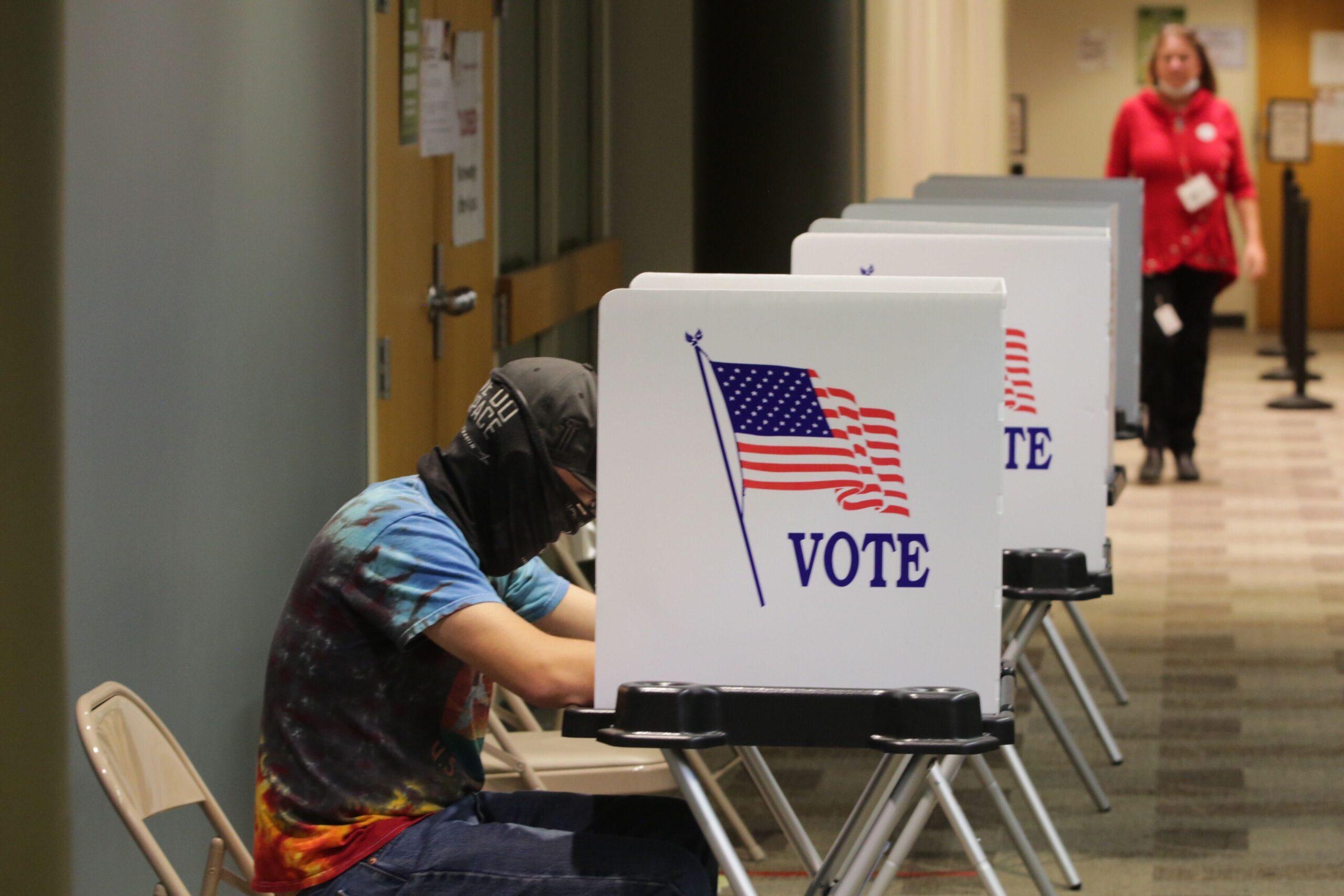
Colorado’s automatic voter registration policy was intended to capture as many unregistered voters as possible. But nearly two years on, there’s a hole in that plan: The federal government has still not cleared the way for the state to enroll Medicaid users.
Here’s how the system currently works: when someone goes to the DMV and presents an ID that confirms they’re eligible to vote, their information is sent to the Secretary of State’s office. If they’re not already registered, the system signs them up, and then sends out a letter letting them know how to decline or affiliate with a political party.
The lawmakers who created the program wanted to include Medicaid recipients in the same process, in order to ensure the state is also automatically registering people with low incomes that might not have vehicles.
But making that happen requires buy-in from the federal Centers for Medicare and Medicaid Services. And so far that office hasn’t approved Colorado (or any state) to use their information to automatically register voters.
On Tuesday, Colorado Sen. Michael Bennet sent a letter to CMS Administrator Chiquita Brooks-LaSure urging her to permit Colorado and other states to extend their AVR programs into Medicaid offices.
The state’s Medicaid program, known as Health First Colorado, “serves more than 1.4 million low-income Coloradans who are disproportionately people of color with poorer health outcomes than the general population,” the letter notes. “The same population faces several challenges to voting and civic engagement, including lower rates of voter registration.”
Bennet is urging the CMS to make changes that clear the way for Colorado’s program. He also noted President Joe Biden’s executive order directing federal agencies to find ways to expand opportunities for voter registration.
Secretary of State Jena Griswold said the goal is to reach potential voters, “regardless of their zip code, regardless of the amount of money in their bank account, regardless if they have a car. None of those things disqualify you from voting, so we need to really try to deliver services in an accessible way.”
Griswold said she’s hopeful Brooks-LaSure will take the steps needed to allow Colorado’s program to take effect.
Research suggests AVR reaches people who otherwise wouldn’t register
Two Stanford University professors found that Colorado’s program significantly increased voter registration compared to earlier approaches.
In the past, DMV workers used to ask unregistered people if they'd like to sign up to vote. However, two years ago the state switched to automatically registering people with a chance to opt out later. Researchers found that basically doubled the number of new registrations.
“This simple study provides strong evidence that with the right set-up, the Department of Motor Vehicles can be an extremely valuable player in registering voters and maintaining accurate voter files in the United States,” the study concludes.
The new system also checks people’s latest address with the DMV against the address on their voter registration and automatically updates it if necessary. The researchers found the state averages 17,465 of these address updates per month.
“Both aspects are really important and they drive at a really important lesson, and that's election modernization can open up access, but also increase security,” said Griswold. “Having the updates to where ballots should go… is really important. It saves county clerks money, but it also makes sure that we're getting ballots to the right place.”
The paper theorized that the added hassle of having to answer even a limited number of questions in person discouraged many people from registering or updating their information. Even though the system was already designed to be easy, they found automatic registration eliminated those final barriers.








